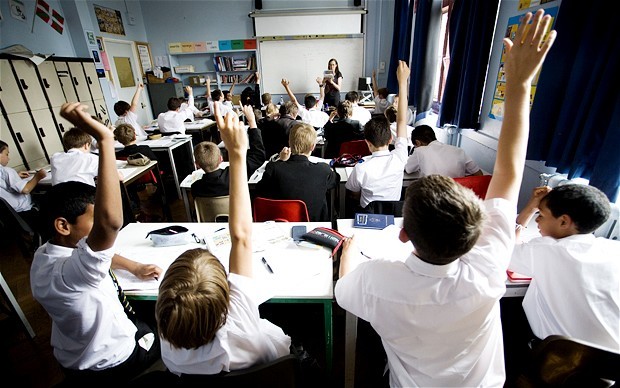
By now schools and nurseries have truly got back into their stride after the Christmas break. The tree and its decorations have been stored safely for another year. Whilst the February half term lurks just around the corner, at this time of year schools are industrious with focussed learning. Many schools hold a parents evening during January, so February is an opportunity for pupils and parents alike to take on board the feedback and start the new year with renewed vigour. For those pupils in Year 11 the countdown to their GCSE’s in the spring has really begun.
Progress 8
To start this month’s news we keep with the theme of GCSE’s. This is the final year in which schools will be judged on their pupils GCSE results alone. Schools have been rated in League Tables based on the number of Year 11 pupils achieving 5 or more GCSE’s at grades A* – C. The changes mean, that from next year, schools will be measured on what is called Progress 8.
Progress 8 is a much longer term assessment of a pupil’s academic journey. Schools will track the improvements a child has made between Key Stage 2 tests taken at the end of primary school and their performance in a specified mixture of eight subjects at the end of secondary school. Each school will then be given a score based on how their pupils have progressed compared to the national average.
The Association of School and College Leaders deputy general secretary Malcolm Trobe said “Progress 8 is a fairer way of judging schools. Schools may be doing a fantastic job in helping struggling pupils make great progress, but judging them on GCSE results does not reflect as schools are judged on grades achieved rather than the progress made”.
Montessori Nurseries
Also this month we read that Montessori Nurseries have seen a huge rise in demand for places. This follows the announcement by the Duke and Duchess of Cambridge that their son would be attending one. Montessori is an approach to educating children developed by Maria Montessori, one of the most important early year’s educators of the 20th century.
There are currently over 700 Montessori nurseries in the UK. Many are privately owned and run but they all follow the educational ethos prescribed by Maria Montessori.
Montessori spent time observing children to understand what motivated and inspired them. She then developed resources and teaching practises to help the children realise their full potential and her teaching methods have had a profound influence on the education of young children all over the world.
30 hours of free childcare
Finally this month, we learn that leading early year’s advisors are warning that small nurseries are not likely to survive the introduction of the proposed 30 hours of funded childcare.
At a recent meeting of local authorities in London, many of those present, predicted that small nurseries would be forced to close. Penny Kenway, Head of early years at Islington Council said “Nurseries will need to have between 50 and 60 places in order to be viable. And for many nurseries this is simply not possible”. The meeting comes ahead of the Government’s plans to expand the current 15 hours of funded childcare that parents receive for three and four year old’s to 30 hours from 2017.
The problem for smaller nurseries is that, on average they make a loss on every funded place they provide because the funding model is critically underfunded. They fear that parents will move their children to larger nurseries who are able to offer the funded 30 hours. There is also a worry that there may be a shortage of places in those nurseries who can offer the 30 hours. For example, a nursery currently taking 50 funded children split between 25 funded children in a three-hour morning session and 25 funded children in a three-hour afternoon session would only be able to take 25 funded children if parents wanted the full six hours a day funded by the government. This will mean some children losing their place. The 30 hours free childcare is only available to parents who work more than 16 hours a week. This means parents who work 2 days a week or less are not eligible although they are likely to still receive the 15 hours free childcare currently available.
The Childcare Bill, to give it the official title, has recently gone through the final stages in the House of Commons. It will be returned to the House of Lords within the next few weeks for them to decide whether to accept the bill. We will be watching the outcome with interest.
Originally written 29 January 2016